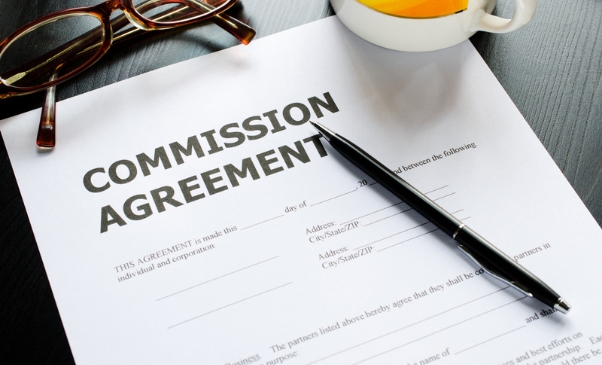A Beginner’s Guide To Brokerage Fees and Investment Commissions: What You Need to Know
It is important to do what you need to ensure you are getting the most out of your investments. There are many different ways brokerage fees and investment charges can be set up, so it is important to know how each one works. After reading the next few lines, in which we explain each step in detail, you can make an investment decision that is well-informed and in your best interest.
Brokerage fees are how much it costs to use the services of an investment business. Some of the services offered are trading stocks, researching the market, and helping people set up plans for their retirement. When it comes to the price, there are many things to think about, such as the company, the amount of money spent, and the type of investment chosen.

What Are Brokerage Fees and Investment Commissions?
You will have to pay brokerage fees and investment costs when buying or selling stocks, bonds, or mutual funds. There are two different kinds of costs that come with brokerage services. These are the commission and the markup. Every transaction has its fee, called a "commission charge," which goes along with it. The part of the final price that pays the broker for their work is called the "markup." This charge is almost always shown as a percentage of the item's suggested retail price.
How to Compare Different Investment Commissions and Brokerage Fees?
Before picking an investment company, it is important to compare the available investment commissions and brokerage fees. When clients use the investment business to buy or sell assets, they have to pay an investment commission fee. The broker's fee for helping with investments is called the "brokerage fee."
Some things, such as the investment commission and the brokerage charge, can greatly affect your total returns. When looking for the best deal, it is important to compare the different investment commissions and brokerage fees that are out there.
How to Minimize Brokerage Fees and Investment Commissions?
Commissions and brokerage fees can add up quickly when you invest, but if you follow a few simple rules, you may be able to save money on these costs. Doing preliminary research and comparing prices is the most important thing to do. After researching, you should choose the broker whose commission rates come closest to meeting your needs.
Putting money into a mutual or exchange-traded fund is another way to cut costs. Compared to the costs of buying individual stocks or bonds, these funds have much lower management fees. You should also avoid buying or selling stocks at the last minute because you are more likely to pay extra fees. Keep detailed records of every deal you make, and make sure your broker sends you a statement regularly.
How to Calculate Brokerage Fees and Commissions
It might be hard to determine how much investment and brokerage services cost. Before you can begin, you need to find out the details of the commission or fee schedule that applies to the security of interest. This information must be in the account agreement or some other similar document. Before you decide to go through with the deal, your broker will probably estimate how much it will cost together.
Multiply the percentage of the commission that the item's price must pay to get the total amount that must be paid. If the commission rate for each share were $9, then it would cost $900 to buy 100 shares of a company ($9 times the number of shares bought). Keep in mind that the final cost of the deal could go up if the broker wants more money on top of the commission they already get from the contract. This is something you should remember.
Factors That Influence Brokerages Fees and Commissions
Many things could affect how much you spend on brokerage fees and other investment-related costs. When you invest, you will have to pay for things like this. Someone who puts in less money the first time may have to pay a different amount of the fee or commission than someone who puts in more money the first time but the same amount. Customers of brokerage firms who trade a lot may be able to get discounts on prices. Some companies even give their clients a chance to save money on transaction costs by letting them use automated services instead of brokers or consultants. Moreover, some brokerages may charge you different fees than others depending on the type of account you open. This is because brokerages have different account types (retirement or margin accounts).

Best Online Brokers for Low Fees and Commissions
People who want to invest but do not want to pay the high commissions and fees that traditional brokers ask for could do well with internet brokers. The most trustworthy Internet brokers offer competitive and similar prices to those of traditional brokerages. They also make buying and selling assets easy and quick, giving you more options. You can also get to your wealth no matter where you are. People who want to cut down on how much they spend on trading fees without giving up control over their money might want to use an online broker.
Common Mistakes to Avoid When Paying Brokerage Fees
Investors often make the mistake of paying brokerage fees without fully understanding the services they are getting in exchange for their money. This is one of the most expensive mistakes that can be made. It is important to research and look for the best broker who can offer the best terms at the lowest commission rates.
You should also try not to sign up for services with a steep learning curve if you can help. It is better to have a simple account with all the important features than one that is complicated and has many options that the user does not know how to use. If you do not have the right information and do not have the help of an experienced investor or an expert, you might have unrealistic expectations about the returns on your investments. This could lead to both disappointment and financial losses.
Useful Tips on How to Save on Brokerage Fees and Investment Costs
When it comes to trading and investing, there are a lot of different fees and costs, which can confuse things very quickly. You are in luck because you can choose from a wide range of options that could lower your investments and brokerage account costs.
It is important to plan how you will organize your assets carefully. You might be able to lower the fees you have to pay for each transaction if you lower the amount of risk you take on and spread out your holdings. Also, limit orders should be used instead of market orders whenever possible to save the most money. If the choice is between the two, limit orders should be used. Check out discount brokerages. Compared to full-service companies, they may have lower commissions and other fees, so you can keep more of the money you make.
Conclusion
When making financial investments, it is important to fully understand all the costs and expenses that could come up. If you have this information, it might help you choose the best investment options for your needs. Your broker will take fees out of your account to pay for the costs of taking care of your investment requests. Investing fees are what an investment company charges its clients to cover some of the costs that come with buying and selling assets.
Before choosing a broker or investment firm, it is important to know about these fees and do a thorough cost analysis. You can make better decisions about your investments if you know more about what might happen if you do something.



